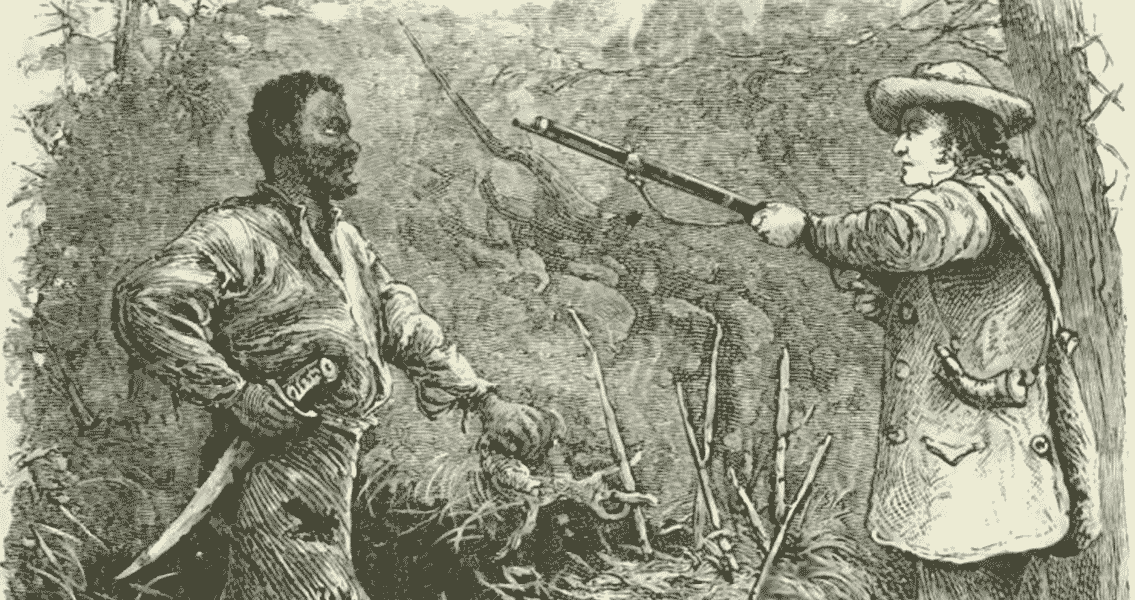<![CDATA[On the 11th November 1831 Nat Turner was executed in Jerusalem, Virginia. Turner had led one of the most effective and sustained slave revolts in United States' history. A deeply fascinating and controversial figure, his actions spread a wave of terror throughout the Southern US states, leading to stricter anti-abolition laws and sentiment that persisted right up until the end of the US Civil War. Nat Turner was born on October 2nd 1800 on a plantation in Southampton County, Virginia. The plantation was owned by Benjamin Turner, a reasonably kind slave owner who allowed Nat to be instructed in reading and writing. As was common for slaves in this period, Nat was sold to other slave owners on several occasions in his youth, with no regard for his family connections and personal relationships. Two defining features of Turner's life were his strong Christian faith, and his belief that he received divine messages through visions or signs in nature. His trust in these messages was so great that at some point in his twenties he abandoned an escape attempt and returned to his master, as he believed the signs had guided him to do so. Perceived messages from God, in the form of unusual atmospheric events and a solar eclipse, are also believed to have inspired him to start his infamous rebellion on 21st August 1831. Throughout the 1820s he had become increasingly vocal in his denunciation of slavery, developing into the role of a preacher and leader of slaves in the Southampton County area. Indeed, his devotion and faith in religious visions were so strong that he went as far as claiming to be chosen by God to lead the slaves from bondage. The insurrection started when Turner and six other slaves killed their owners, the Travis Family. They quickly secured guns and horses, and enlisted another 75 black slaves to continue their rebellion, a two day rampage that resulted in the murder of 51 people in Southampton County. After the rebellion was finally halted by the state militia, Turner managed to hide himself away in Virginia for six weeks before being captured by the authorities. The majority of his supporters were killed, and countless black people with no connection to the rebellion were lynched in white reprisal attacks. The loss of life caused by the insurrection led to a huge public outcry in the Southern states. The region had an organised emancipation movement, but the reaction to Turner's rebellion all but ended it. New, harsher legislation was put into practice to curb the freedom of slaves. Limitations were placed on their assembly, education and movement. Many historians suggest the response to Turner's insurrection was a key event in the origins of the American Civil War. It further entrenched southern slave owners' views, and polarised the United States between abolitionists and anti-abolitionists. In the immediate aftermath of Turner's capture, and before his trial, the 'Confessions of Nat Turner' were published by the lawyer Thomas Gray. Gray claimed that the document was dictated to him by Turner, and it was long considered to be the definitive account of the insurrection. Gray, a slave owner himself, stood to make a tremendous profit from the confession, and critics and historians have since argued about the reliability and accuracy of the account. The question marks over the origins of the Confessions mean that little is known for sure about Turner himself. What is undeniable however, are the myriad consequences of the insurrection he led, and the slave owners' reaction to it. ]]>
Anniversary of Nat Turner's Execution
